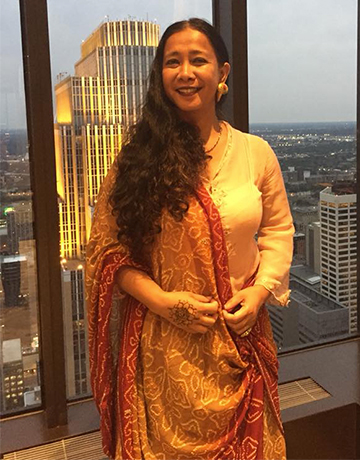
Associate Professor of cultural theory and historiography in the Department of Gender Women & Sexuality Studies, she is also a faculty advisor/ affiliate of the Interdisciplinary Center for the Study of Global Change, and senior affiliate at Asian Literatures, Cultures, and Media. Her book, The Dance That Makes You Vanish: Cultural Reconstruction in Post-Genocide Indonesia (University of Minnesota Press, 2013) theorized cultural reconstruction and embodiment of memory after genocide. she has published articles focusing on de-colonialization and feminist third world tactics in transnationalism and Critical studies of Empire. Her new book project, Dancing in the Forest: Modern Machine and Audio Politics of Land Narrative, interrogates the aesthetic encounter between indigenous voices and capitalist noise within neoliberal space. Her most recent writings are: “The Rethinking of Remembering: Who Lays Claim to Speech in the Wake of Catastrophe?” Roudledge, 2017; “From Che to Guantanamera: Decolonizing the Corporeality of the Displaced,” Rowman & Littlefield International, Kilombo: International Relations and Colonial Questions); “The Dancing Goddess: Ecological Memory, Technique, and the Inquiry of Value in Globalized Space,” Smithsonian, Performing Indonesia, 2016; “Theorizing the Archive: Corporealness, Decolonization of Thinking and Tactics, and Playfulness of Memory,” in Kerja Arsip & Pengarsipan Seni Budaya di Indonesia, Farah Wardan & Yoshi Fajar Kresno Murti , IVAA, 2014.
Her most recent international keynote addresses are: “Dancing the Traces of Empire Between the International and Speaking of Specificity” (China, 2016); “Reviving Culture for Rural Sustainability” (Sumatra , 2018) and Arts and Sustainability: Land, Forest & Water (World Culture Forum, Indonesia/ UNESCO 2016).
Larasati’s most notable creative work: Genocide series: “ Missing” (Malaysia 2018), “archive“ (Melbourne 2018), “Lament” and “Archive” (Canberra 2018) Dancing the Violent Body of Sound “ was funded by Institute for Advanced Studies.” Dancing Culture of War Borders (University California Riverside, 2011) and Tembok Mari Bicara (“Talk to the Wall”)-Indonesia 2008.
